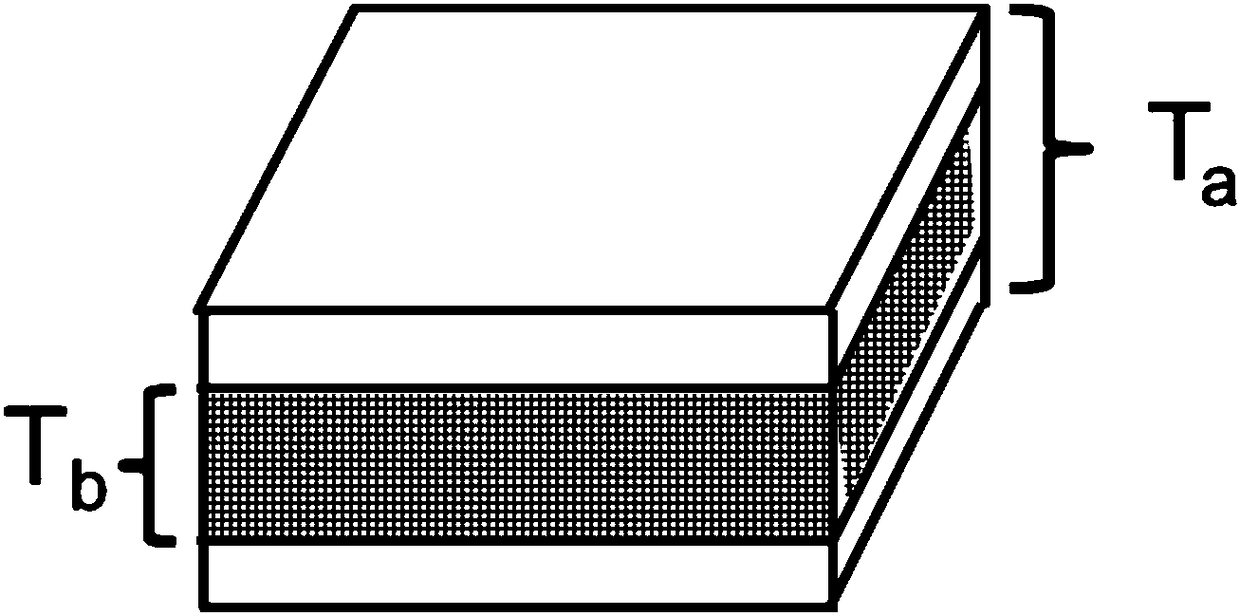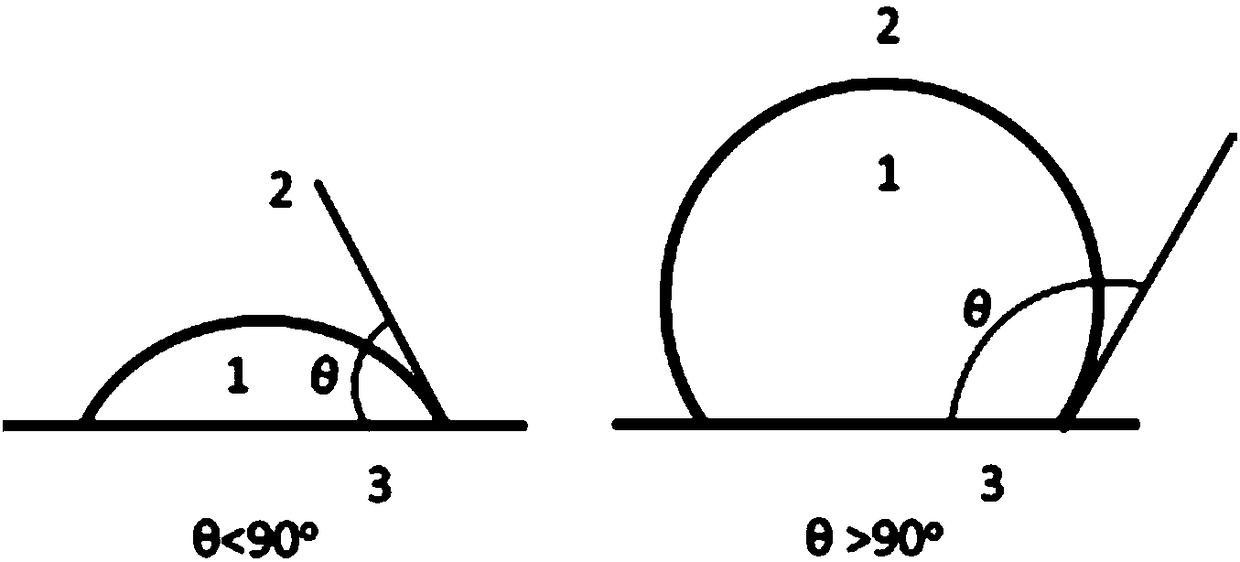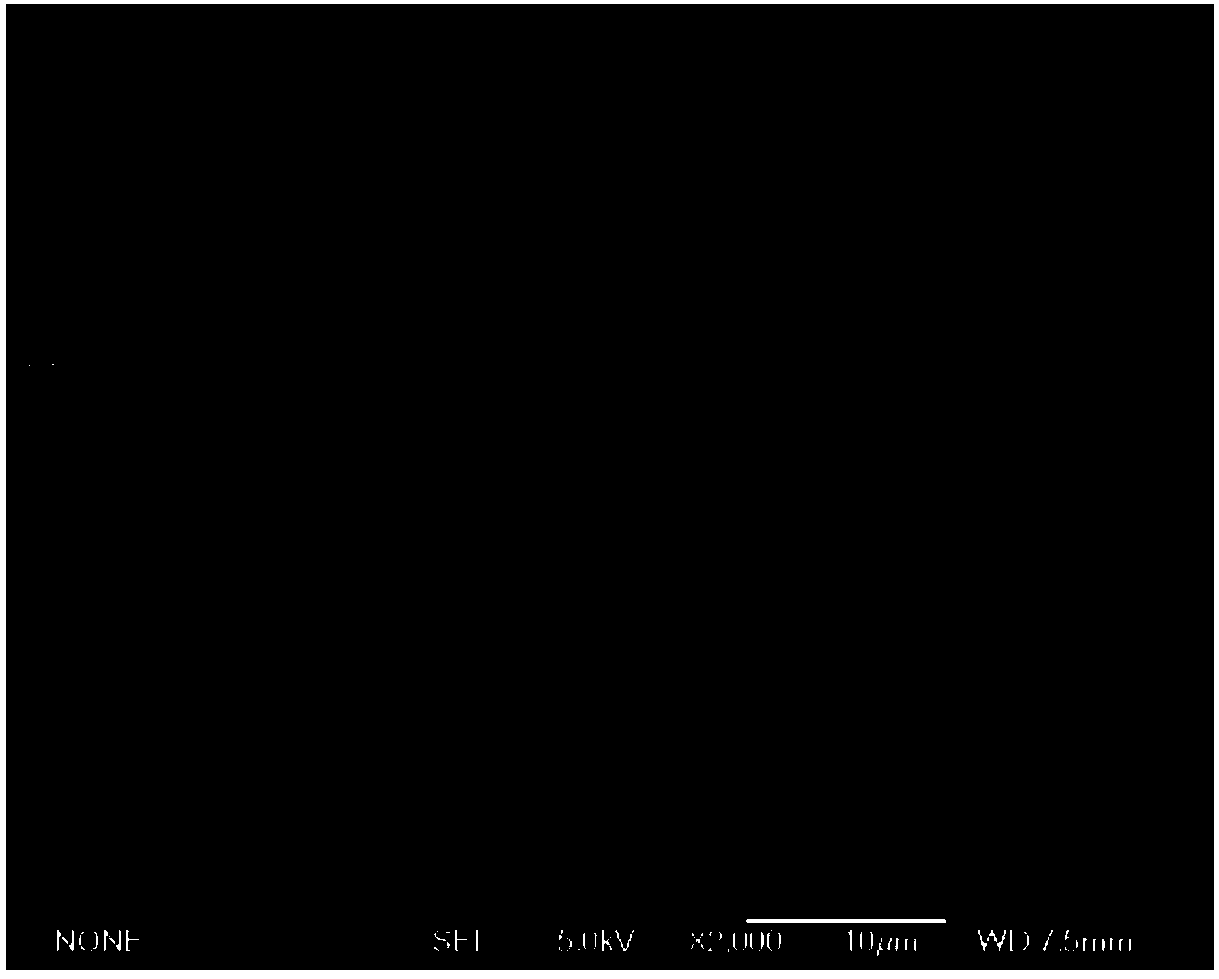Polymer composite electrolyte membrane and preparation method thereof
A composite electrolyte membrane and polymer technology, which is applied in circuits, fuel cells, electrical components, etc., can solve problems such as low mechanical strength, high price of nanofiber membranes, and low industrialization of electrospinning technology
- Summary
- Abstract
- Description
- Claims
- Application Information
AI Technical Summary
Problems solved by technology
Method used
Image
Examples
Embodiment 1
[0127] (1) Raw materials
[0128] Porous membrane: hydrophobic polytetrafluoroethylene porous membrane PM1;
[0129] Non-fluoropolymer electrolyte solution: sulfonated polyether ether ketone SPEEK1 / dimethylformamide solution with a concentration of 10wt%;
[0131] (2) Compound steps
[0132] After the hydrophobic polytetrafluoroethylene porous membrane is fixed with an outer frame, a surface is infiltrated with a quantitative solvent, and the solvent content in the hydrophobic polytetrafluoroethylene porous membrane after infiltration is 80%. The non-fluoropolymer electrolyte solution was uniformly cast on the infiltrated porous membrane, and then placed in a vacuum oven at 60°C for drying (vacuum degree of 100 Pa) to obtain a composite membrane with surface composite. Then use the same method to composite the other surface, and dry to obtain a polymer composite electrolyte membrane composed of a non-fluorine polymer electrolyte and a hydrophobic polytetrafl...
Embodiment 2
[0138] (1) Raw materials
[0139] Porous membrane: hydrophobic polytetrafluoroethylene porous membrane PM1;
[0140] Non-fluoropolymer electrolyte solution: sulfonated polyether ether ketone SPEEK1 / dimethylformamide solution with a concentration of 5wt%;
[0142] (2) Compound steps
[0143] After the hydrophobic polytetrafluoroethylene porous membrane is fixed with an outer frame, a surface is infiltrated with a quantitative solvent, and the solvent content in the hydrophobic polytetrafluoroethylene porous membrane after infiltration is 80%. The non-fluorine polymer electrolyte solution was uniformly cast on the infiltrated porous membrane, and then placed in a vacuum oven at 60°C for drying (vacuum degree 100 Pa) to obtain a composite membrane with surface composite. Then, the other surface is composited in the same way, and after drying, a polymer composite electrolyte membrane of non-fluorine polymer electrolyte and hydrophobic polytetrafluoroethylene por...
Embodiment 3
[0149] (1) Raw materials
[0150] Porous membrane: hydrophobic polytetrafluoroethylene porous membrane PM3;
[0151] Non-fluoropolymer electrolyte solution: sulfonated polyether ether ketone SPEEK2 / dimethylformamide solution with a concentration of 5wt%;
[0153] (2) Compound steps
[0154] After fixing the hydrophobic polytetrafluoroethylene porous membrane with an outer frame, a surface is infiltrated with a quantitative solvent, and the solvent content in the hydrophobic polytetrafluoroethylene porous membrane after infiltration is 50%. The non-fluoropolymer electrolyte solution was uniformly cast on the infiltrated porous membrane, and then placed in a vacuum oven at 60°C for drying (vacuum degree of 100 Pa) to obtain a composite membrane with surface composite. Then, use the same method to composite the other surface, and dry to obtain a polymer composite electrolyte membrane composed of a non-fluoropolymer electrolyte and a hydrophobic polytetrafluoroe...
PUM
| Property | Measurement | Unit |
|---|---|---|
| thickness | aaaaa | aaaaa |
| thickness | aaaaa | aaaaa |
| thickness | aaaaa | aaaaa |
Abstract
Description
Claims
Application Information
 Login to View More
Login to View More - R&D
- Intellectual Property
- Life Sciences
- Materials
- Tech Scout
- Unparalleled Data Quality
- Higher Quality Content
- 60% Fewer Hallucinations
Browse by: Latest US Patents, China's latest patents, Technical Efficacy Thesaurus, Application Domain, Technology Topic, Popular Technical Reports.
© 2025 PatSnap. All rights reserved.Legal|Privacy policy|Modern Slavery Act Transparency Statement|Sitemap|About US| Contact US: help@patsnap.com



